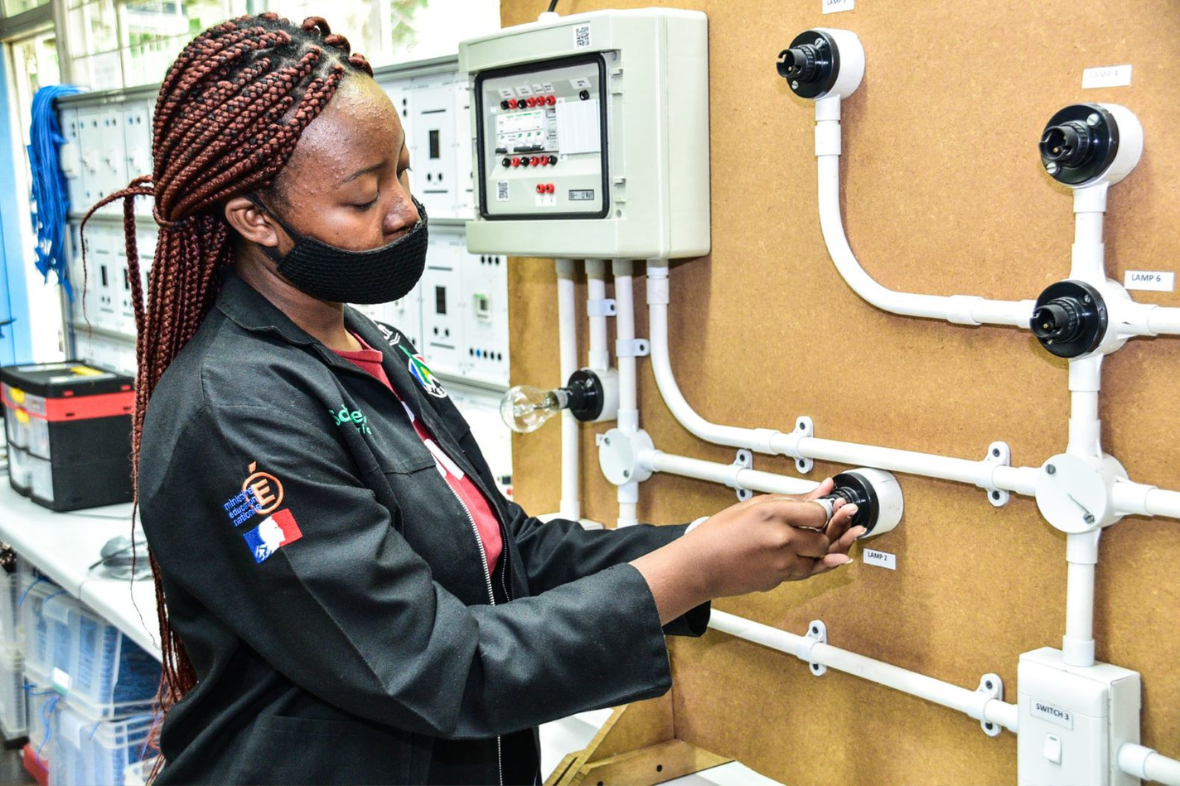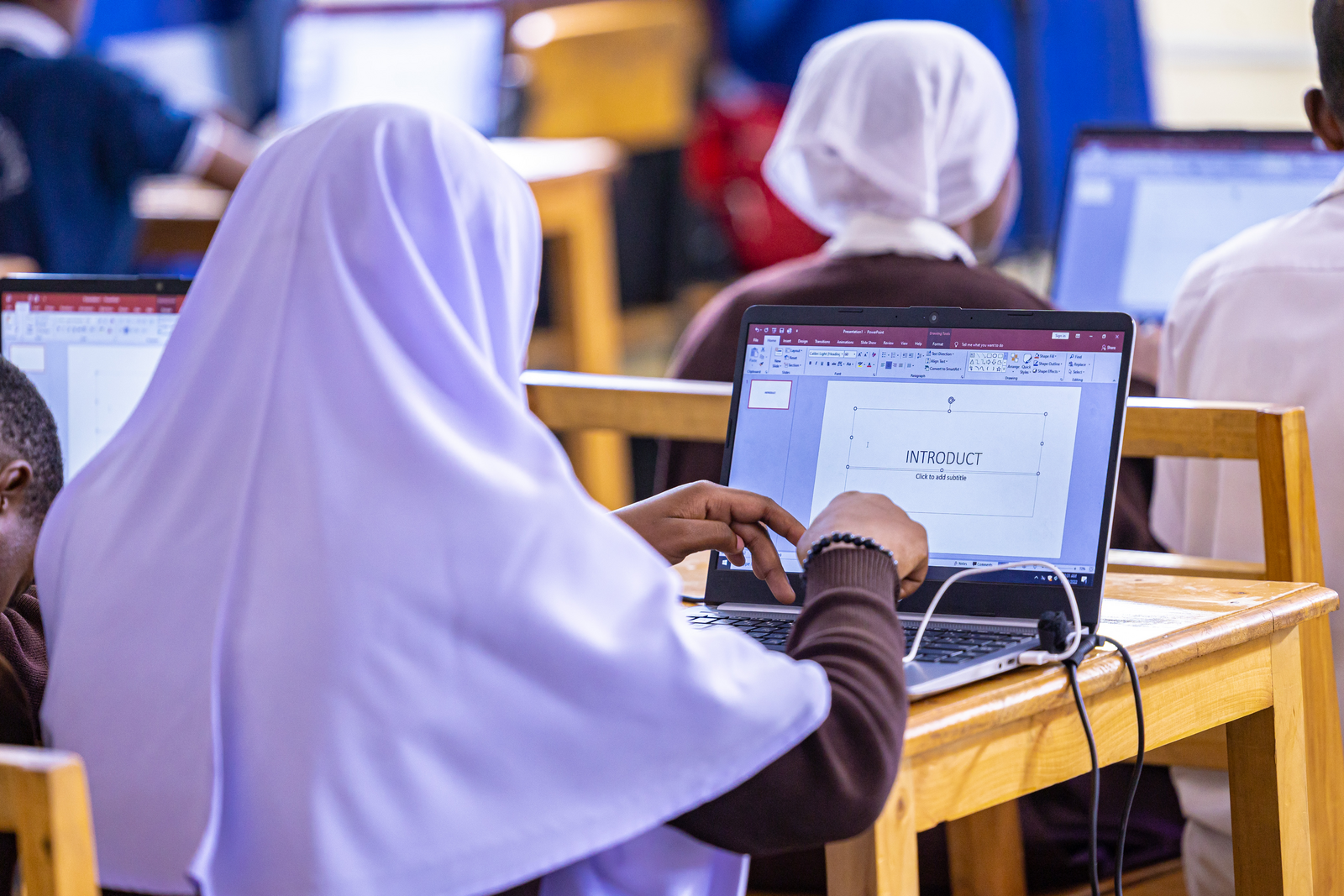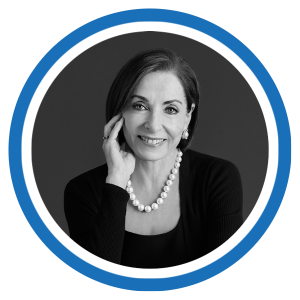
Education key to The Estée Lauder Companies’ gender equity goals

News
Deep-rooted commitment to education and transparent disclosure helps assure investors its ESG strategy is credible and delivers.
For The Estée Lauder Companies (ELC), which carries the name of one of the most famous women in the cosmetics business, gender equity isn’t just a priority of its environmental, social and governance strategy, but a fulfilment of its legacy.
“This work is essential to who we are. It is our legacy and our future,” said Sara Moss, Vice Chairman of ELC, a member of the Global Business Coalition for Education.
“Our company was founded by a woman, we have had strong women throughout our company’s history. Estée was a powerhouse so this is really part of our DNA.”

Education is absolutely fundamental - to society, to our business, consumers and employees. It makes economic mobility and true advancement possible.
Sara Moss, Vice Chairman, The Estée Lauder Companies
One of the top prestige beauty companies in the world, ELC has extensive educational programs within the company, many led by senior leaders, and supports numerous educational initiatives outside the company.
ELC has joined the United Nations Five for 5 initiative, aligned with UN Sustainable Development Goal 5 to achieve gender equality and empower all women and girls.
To mark this year’s Women’s History Month and International Women’s Day on March 8, ELC has released updates on its progress towards targets set two years ago to level the playing field for women and girls, both inside and outside ELC.
The numbers are impressive: 81% of ELC’S 60,000 global workforce are women; 59% of vice-president positions and above are held by women; 44% of the board of directors are women; the corporation is on track to achieve gender pay parity in 2023.
Many of ELC’s brands, half of their regions, and all of their Global Innovation Centers are led by women. In the fiscal year 2022 to 2023, there has been progress in advancing the representation of women in senior roles. Women-led brands rose from 36% to 39%, and women-led affiliates rose from 54% to 57%.
ELC’s flagship education program is Open Doors, a leadership skills program. It starts with a one-week intensive course focussed on soft skills such as understanding your strengths, effective communication and developing resilience, followed by a one-year coaching program with each participant receiving a sponsor from within the company. Eighteen months after starting the program, more than 50% of women enrolled have been promoted.
Among the educational programs outside the organization, ELC has collaborated with their Global Changemaker, poet and author, Amanda Gorman to create ELC’s WRITING CHANGE, a program which supports grassroots organizations dedicated to advancing literacy. ELC has supported the model Karlie Kloss’s non-profit, Kode with Klossy, which teaches young women and non-binary students how to code. And through The Estée Lauder Companies Charitable Foundation (ELCCF) has also supported The Young Women’s Leadership Schools, a network of all-girls public inner city secondary schools, and is a major donor to Co-Impact’s Gender Fund.
ELCCF’s mission is to improve the well-being of its diverse global communities, with equity at the center, and an emphasis on women and girls. In fiscal year 2022, ELC invested $9.2 million in organizations that are doing the vital work of increasing access to health care and quality education for women and girls around the world. Additionally, since 1992 ELC’s Breast Cancer Campaign and ELCCF have funded more than $118 million for global research, education and medical services.
At a time when ESG generally is facing criticism for a lack of depth and measurable outcomes, Sara said that the authenticity of ELC’s commitment to gender equity and education has helped assure investors that its ESG strategy is credible and delivers.
“Education is a critical component to helping us achieve our ESG goals, from providing fundamental access to education for women and girls around the world, to equipping our employees with the skills they need to advance to the highest levels of leadership,” said Moss, who took part in GBC-Education’s panel discussion at last year’s UN General Assembly on the education and ESG.
“We know investors care about ESG, because consumers, regulators and employees care. I can’t overstate the importance of setting ambitious targets, continually evaluating and measuring progress, and transparently disclosing where you are to stakeholders.”
Related Insights


